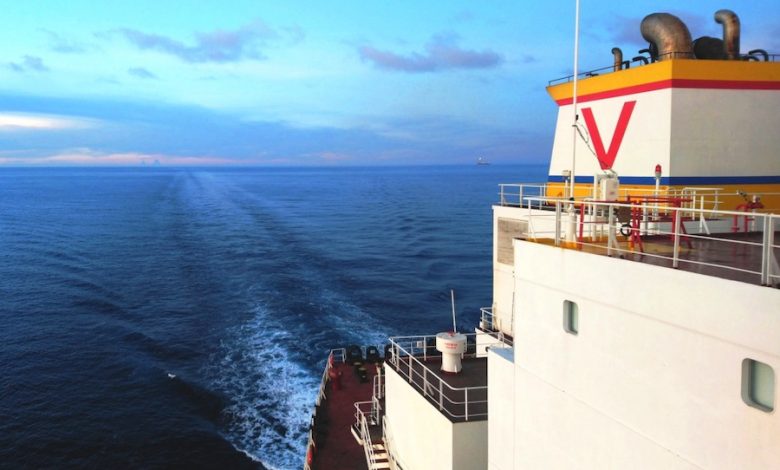Wah Kwong comes up with solution to comply with CII

Hong Kong shipowner Wah Kwong Maritime Transport Holdings has come up with a validated way to ensure its fleet continues to comply with the International Maritime Organization’s new Carbon Intensity Indicator (CII) regulations.
French class society Bureau Veritas (BV) has just delivered an approval in principle (AiP) to Wah Kwong and Qiyao Environmental Technology (Qiyao Environ Tec), a subsidiary of Shanghai Marine Diesel Engine Research Institute, for a carbon capture and storage (CCS) project onboard two Wah Kwong vessels.
The AiP follows a joint study led by BV, Wah Kwong and Qiyao Environ Tec, which validated the technical feasibility of using CCS technology on existing vessels as a measure to ensure compliance with CII.
Tests showed Qiyao Environ Tec’s CCS units achieved more than 85% CO2 capture from the exhaust gas flow. The Chinese system is based on an organic amine solution which extracts CO2 from exhaust gas, before it is cooled into liquid form and stored in a low temperature storage tank.
The study showed that CCS enabled the two vessels to remain compliant by upgrading and maintaining their CII rating at a C level until 2030. It considered all aspects of retrofit space, operational impact, capex and opex, as well as the upcoming EU emissions trading system (ETS), to assess the future investment and revenue expectations for each vessel.
Hing Chao, executive chairman of Wah Kwong, said: “With regulations such as the IMO’s CII and the EU ETS coming into force for shipping, it is essential to ensure compliance and to reduce the carbon footprint of existing vessels for years to come. Carbon capture and storage technology is one of the net-zero solutions currently available.”
Chao said he hoped this development would encourage further studies or advance implementation of CCS technology.
Jianfu Dong, president of Qiyao Environ Tec, said: “Carbon capture and storage technology has been available for several decades, notably in industrial projects on shore, but only recently have we started to deploy its considerable potential for the maritime industry.”
